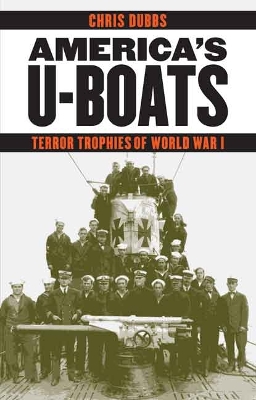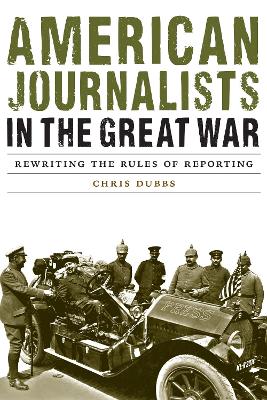Studies in War, Society, and the Military
2 total works
The submarine was one of the most revolutionary weapons of World War I, inciting both terror and fascination for militaries and civilians alike. During the war, after U-boats sank the Lusitania and began daring attacks on shipping vessels off the East Coast, the American press dubbed these weapons "Hun Devil Boats," "Sea Thugs," and "Baby Killers." But at the conflict's conclusion, the U.S. Navy acquired six U-boats to study and to serve as war souvenirs. Until their destruction under armistice terms in 1921, these six U-boats served as U.S. Navy ships, manned by American crews. The ships visited eighty American cities to promote the sale of victory bonds and to recruit sailors, allowing hundreds of thousands of Americans to see up close the weapon that had so captured the public's imagination.
In America's U-Boats Chris Dubbs examines the legacy of submarine warfare in the American imagination. Combining nautical adventure, military history, and underwater archaeology, Dubbs shares the previously untold story of German submarines and their impact on American culture and reveals their legacy and Americans' attitudes toward this new wonder weapon.
When war erupted in Europe in 1914, American journalists hurried across the Atlantic ready to cover it the same way they had covered so many other wars. However, very little about this war was like any other. Its scale, brutality, and duration forced journalists to write their own rules for reporting and keeping the American public informed.
American Journalists in the Great War tells the dramatic stories of the journalists who covered World War I for the American public. Chris Dubbs draws on personal accounts from contemporary newspaper and magazine articles and books to convey the experiences of the journalists of World War I, from the western front to the Balkans to the Paris Peace Conference. Their accounts reveal the challenges of finding the war news, transmitting a story, and getting it past the censors. Over the course of the war, reporters found that getting their scoop increasingly meant breaking the rules or redefining the very meaning of war news. Dubbs shares the courageous, harrowing, and sometimes humorous stories of the American reporters who risked their lives in war zones to record their experiences and send the news to the people back home.

